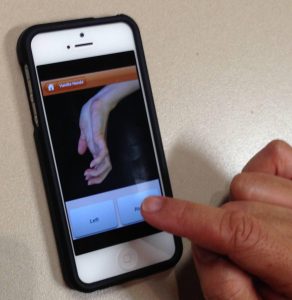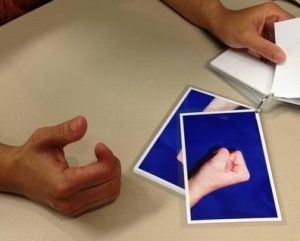Recently, a number of Specialised Hand Therapy Services staff had the opportunity to attend one of David Butler and Lorimer Moseley’s Explain Pain and Graded Motor Imagery (GMI) Courses. This 4 day combined course was run through the Neuro Ortho Institute, a leading educational organisation that provides evidence based research regarding how to assess and assist people who experience significant pain states.
The Graded Motor Imagery (GMI) course explored the amazing capacity for neuroplasticity in the brain to occur through the graded exercising of synaptic activity. In doing so, the course illustrated there is capacity for the brain to change and adapt giving hope to people who experience chronic pain states. Anecdotally, conditions such as Chronic Regional Pain Syndrome, chronic tennis elbow and phantom limb pain are particular pain states where GMI can be a highly beneficial aspect to a hand therapy programme. Essentially, GMI empowers patients to be able to take on an active role in managing their pain through gentle, graded and relevant brain exercises to over-ride the constant pain signals that travel to their affected upper limb.
GMI rediscovers the concept of the mind and body interconnection. Not only do chronic pain and movement problems cause structural changes in the affected body part such as the muscles, ligament, tendon and joints; but it also causes changes in the brain and communication pathways (synapses) which controls these affected body parts. GMI suggests that the ongoing pain is often due to changes in the brain more than the changes in the body. The good news is that the brain is plastic, it can be remoulded, and can adapt to changes. So through specific exercises there is the possibility of retraining the brain to communicate the correct signals to the affected body part.
At Specialised Hand therapy Services GMI has become a readily used therapy for a number of patients that have experienced upper limb pain. We have had very positive feedback regarding its use, especially as its versatility means that it can be used anywhere and anytime. It has enabled our therapists to further deepen our understanding of the very complex nature of pain, and how to approach treating it with individualised care for our patients.
If you interested in knowing more about Graded Motor Imagery (GMI), please feel free to ask one of our staff at your next appointment, or contact Specialised Hand Therapy Services on 9324 2881, reception@spht.com.au


References:
www.gradedmotorimagery.com
www.noigroup.com
